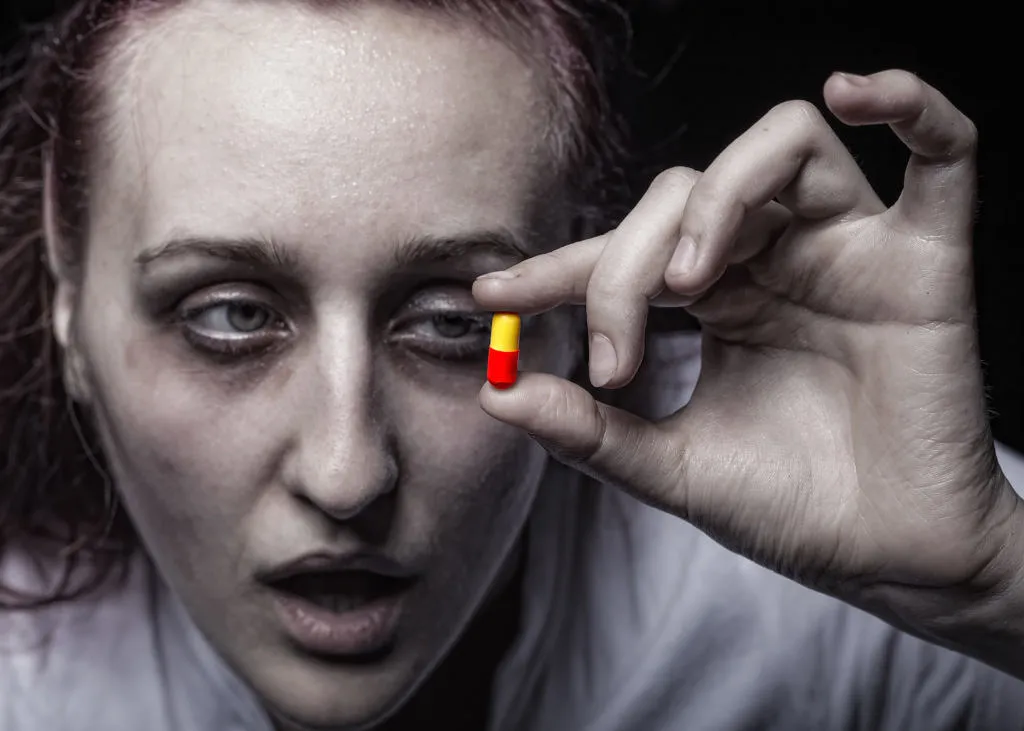Imagine feeling trapped in a cycle of repetitive thoughts and behaviors that you can’t escape from—this is the daily reality for someone living with Obsessive-Compulsive Disorder (OCD). Now, imagine adding addiction to the mix, where substances that once seemed like a relief become another layer of the trap, intensifying the OCD symptoms.
In this blog, we’re going to delve into the complex relationship between OCD and addiction. We’ll explore why these two conditions often co-exist, how they can fuel each other, and highlight the latest treatments that tackle both issues together.
So, whether you’re seeking help for yourself or supporting someone else, this blog will help you in recovery!
Contents
Understanding OCD and Its Impact on Addiction

Have you ever wondered how Obsessive-Compulsive Disorder (OCD) could influence someone’s likelihood of developing an addiction? Let’s dive into what OCD really is and how it interacts with addictive behaviors.
- OCD is a mental health condition characterized by unwanted, recurring thoughts (obsessions) and repetitive behaviors (compulsions). These compulsions are often performed in an attempt to alleviate the anxiety caused by the obsessions. For example, someone might feel compelled to wash their hands repeatedly due to a fear of germs or contamination.
Now, imagine the stress and exhaustion that come from this constant cycle of obsessions and compulsions. It’s mentally and emotionally draining. To find some relief, some individuals with OCD turn to alcohol or drugs. Initially, these substances might seem like they ease the anxiety and provide a temporary escape from the relentless compulsions. However, this can quickly lead to a new problem—addiction.
When substance use becomes a person’s main way of coping with OCD, it can exacerbate the disorder itself. The temporary relief fades, but the need for the substance grows, creating a dependency. This interplay between OCD and addiction complicates both conditions, making them harder to manage and treat.
Understanding this dynamic is crucial for anyone dealing with OCD and substance use issues.
How Addiction Complicates OCD
 Substance abuse significantly worsens the symptoms of Obsessive-Compulsive Disorder (OCD) and complicates its treatment. Here’s how addiction impacts those with OCD:
Substance abuse significantly worsens the symptoms of Obsessive-Compulsive Disorder (OCD) and complicates its treatment. Here’s how addiction impacts those with OCD:
1. Amplifies Symptoms: Regular use of drugs or alcohol heightens the brain’s sensitivity to stress, making OCD symptoms worse over time.
2. Increases Tolerance: Addiction can lead to tolerance, where more of the substance is needed to achieve the same calming effect. This not only escalates substance use but also disrupts cognitive functions and impairs judgment, undermining effective coping strategies for OCD.
This complex interaction underscores the need for comprehensive treatment strategies that tackle both conditions to improve outcomes for individuals affected by both OCD and addiction.
Identifying Co-occurring OCD and Addiction

Recognizing the signs and symptoms of co-occurring Obsessive-Compulsive Disorder (OCD) and addiction is vital for effective diagnosis and treatment. Here are key indicators to look out for that may suggest someone is dealing with both conditions:
- Escalation of Rituals and Substance Use: This pattern may indicate that the person is using substances to manage their anxiety from OCD symptoms, but as tolerance develops, both the compulsions and substance use escalate.
- Heightened Anxiety and Withdrawal Symptoms: Increased anxiety, especially when unable to perform rituals or access substances, can be a sign of both OCD and addiction. Withdrawal symptoms may also worsen OCD symptoms, creating a cycle that intensifies the need for the substance to relieve OCD distress.
- Deteriorating Functioning Despite Rituals: If an individual’s daily functioning continues to deteriorate despite engaging in compulsive rituals or substance use, it may signal that both disorders are present and interacting negatively. This includes falling performance at work or school, worsening personal hygiene, and declining interpersonal relationships.
- Secrecy and Isolation: An increase in secretive behavior regarding rituals or substance use, coupled with social withdrawal, can indicate that the person struggles with both OCD and addiction. Isolation often exacerbates symptoms of both conditions.
Remember, recognizing the presence of both OCD and addiction is crucial for effective treatment. Identifying these co-occurring conditions early can greatly enhance the effectiveness of intervention strategies and improve the likelihood of successful recovery.
Treatment Strategies for OCD and Addiction

Effectively treating co-occurring Obsessive-Compulsive Disorder (OCD) and addiction requires an integrated approach that addresses both conditions simultaneously. Here’s a look at the key components of such treatment strategies:
Medication Management
For OCD, selective serotonin reuptake inhibitors (SSRIs) are commonly prescribed to help reduce the severity of obsessions and compulsions. For addiction, depending on the substance involved, medications may include those that help manage withdrawal symptoms, reduce cravings, or treat specific side effects.
Cognitive-Behavioral Therapy (CBT)
For OCD, CBT focuses on understanding the fears driving the compulsive behaviors and learning how to tolerate discomfort without performing rituals. For addiction, CBT helps identify triggers for substance use, develop coping strategies to handle cravings, and build skills to prevent relapse.
Exposure and Response Prevention (ERP) Therapy
ERP is a specific type of CBT that is considered one of the most effective treatments for OCD. In the context of addiction, ERP can be adapted to include exposures to drug-related cues without engaging in substance use, thus helping to break the cycle of cravings and compulsive use.
Integrated Treatment Planning
For individuals with both OCD and addiction, treatment plans must be carefully integrated to address the intricacies of each condition. This might involve a team of specialists working together, including psychologists, psychiatrists, addiction counselors, and other healthcare professionals. Integrated treatment plans ensure that therapies are aligned and that progress in one area supports progress in another.
Supportive Therapies and Aftercare
Support groups, family therapy, and ongoing aftercare are essential components of successful treatment for OCD and addiction. Support groups like Alcoholics Anonymous (AA) or OCD support groups provide community support, while family therapy helps improve communication and support systems at home. Ongoing aftercare and monitoring are crucial for long-term management, helping to prevent relapse and ensure continuous improvement.
By combining these approaches, treatment for individuals suffering from both OCD and addiction can be more comprehensive, offering a better chance for recovery and long-term management of both conditions.
Get Treatment for OCD and Addiction
If you or someone you know is struggling with Obsessive-Compulsive Disorder (OCD) or addiction, finding the right help is crucial. At MantraCare, OCDMantra, and QuitMantra, we understand the challenges you face and are here to support you with comprehensive and compassionate care.
Our affordable online therapy sessions are designed to provide you with the tools and support you need to manage both OCD and addiction.
Don’t let OCD or addiction control your life. Take the first step towards recovery and improved well-being by visiting our website today. You can book your trial therapy session now!
